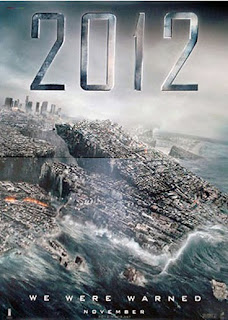 Mi manca l’ipocrisia, o meglio una certa ipocrisia. Non quella bigotta o della buoncostume.
Però quando sento a proposito di evasori, consumatori finali e raccomandati “ E lei non lo farebbe al posto loro?”; quando leggo che un Senatore della Repubblica italiana dice a proposito di un tossicodipendente che è morto in carcere per le percosse che è morto perchè era drogato; quando un essere umano commette reato solo per essere nato in certi paesi e non in altri, allora la rimpiango un po’.
Se l’ipocrisia è un omaggio che il vizio rende alla virtù, almeno si sa cosa qual è il vizio e qual è la virtù.
AntoEnglish
I miss hypocrisy, at least a certain kind of it. Not the bigots’ or the vice squad one.
But when I hear, referring to tax evaders, to “end users” of escorts, and people for whom strings have been pulled, “Wouldn’t you do it at his/her place?”; when I read that a Senator of the Italian Republic says about the death of young drug addict from injuries while in police custody, that he died precisely because he was a drug addict*; when a human being commits a crime just because he/she was born in a certain country**, then I miss it a bit.
If hypocrisy is homage paid by vice to virtue, then vice and virtue are at least known.
Mi manca l’ipocrisia, o meglio una certa ipocrisia. Non quella bigotta o della buoncostume.
Però quando sento a proposito di evasori, consumatori finali e raccomandati “ E lei non lo farebbe al posto loro?”; quando leggo che un Senatore della Repubblica italiana dice a proposito di un tossicodipendente che è morto in carcere per le percosse che è morto perchè era drogato; quando un essere umano commette reato solo per essere nato in certi paesi e non in altri, allora la rimpiango un po’.
Se l’ipocrisia è un omaggio che il vizio rende alla virtù, almeno si sa cosa qual è il vizio e qual è la virtù.
AntoEnglish
I miss hypocrisy, at least a certain kind of it. Not the bigots’ or the vice squad one.
But when I hear, referring to tax evaders, to “end users” of escorts, and people for whom strings have been pulled, “Wouldn’t you do it at his/her place?”; when I read that a Senator of the Italian Republic says about the death of young drug addict from injuries while in police custody, that he died precisely because he was a drug addict*; when a human being commits a crime just because he/she was born in a certain country**, then I miss it a bit.
If hypocrisy is homage paid by vice to virtue, then vice and virtue are at least known.
* On the 9th of November, Mr Giovanardi, a Senator, declared that the cause of death of Stefano Cucchi, who died while in custody from injuries, was his drug addiction. **The current legislation makes a crime to enter or to stay in Italy without permission.






 Non ho scritto per tre motivi principali:
- avevo il terrore della pagina bianca,
- ho preso una specie di vacanza,
- non volevo entrare, essendoci già entrata in qualche modo, nelle mutande dei moralisti.
AntoEnglish
I have not written for three main reasons:
- I was afraid of writing,
- I was on a sort of holiday,
- I would not comment, and indeed I had already done it, on moralists’ double standards.
Non ho scritto per tre motivi principali:
- avevo il terrore della pagina bianca,
- ho preso una specie di vacanza,
- non volevo entrare, essendoci già entrata in qualche modo, nelle mutande dei moralisti.
AntoEnglish
I have not written for three main reasons:
- I was afraid of writing,
- I was on a sort of holiday,
- I would not comment, and indeed I had already done it, on moralists’ double standards.



